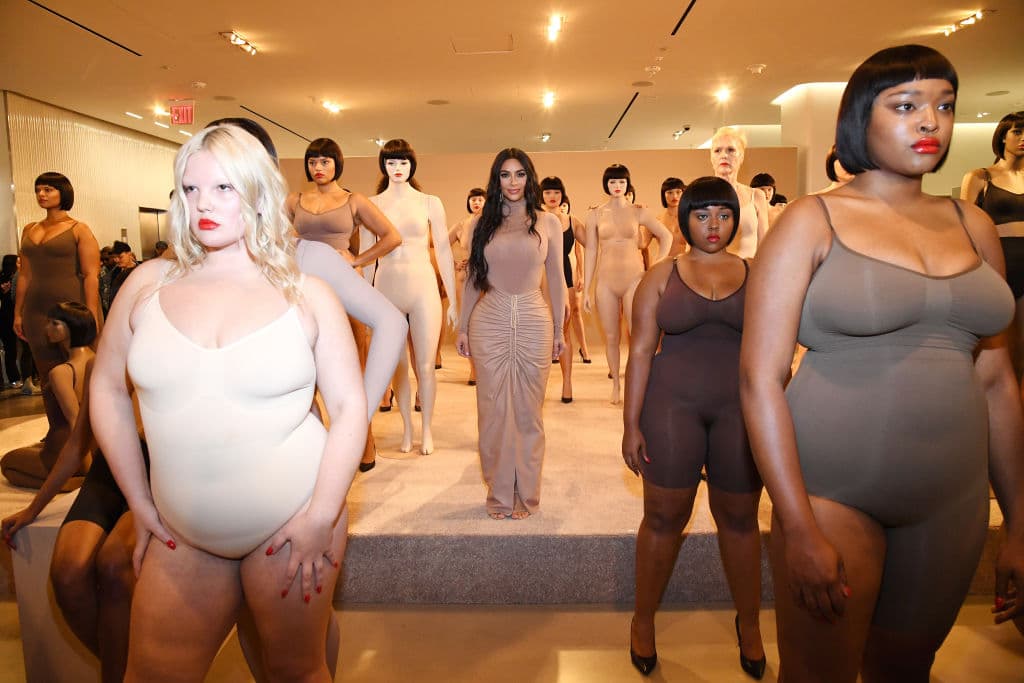The intimate apparel industry got a lift this week when Rihanna and Kim Kardashian announced hefty funding rounds for their respective fashion ventures.
Rihanna’s lingerie brand, Savage X Fenty, secured $125 million in Series C. The following day, Bloomberg reported that Kardashian’s shapewear line, Skims, had doubled its valuation to $3.2 billion after raising $240 million in new capital.
Both Forbes billionaires thanks to their businesses, Rihanna and Kardashian are quick to gush about company growth on social media and elsewhere, but, like many celebrity entrepreneurs, they are heavily guarded when it comes to disclosing crucial financial information.
Generally, celebrity entrepreneurs tend to decline to reveal how much they have personally invested and almost all are tight-lipped about sales figures.
“All these private companies are on a PR tear and it’s even easier when a big name is involved,” says Sucharita Kodali, retail analyst at Forrester. She adds that when it comes to valuations, most startups lie, typically by a factor of 2x to 10x. “Who knows,” she adds, “because no one has seen the term sheets.”
Still, celebrities continue to use their fame as a sword and a shield for garnering startup recognition.
Early examples include Gwyneth Paltrow, who launched her lifestyle brand, Goop, in 2008. By the time she raised $50 million in Series C funding a decade later, various sources estimated Goop’s revenue at $15 million to $20 million, but the company declined to confirm the number.
These days, Goop relies on selling provocative items–such as its Jade Egg (which claims to boost sexual energy when inserted in one’s vagina) and the “Keep Your Hands Off My Vagina” candle–more than her acting career to generate buzz. But when it comes to reporting annual sales figures, the company is far more reserved than its product lineup.
Country singer Blake Shelton, who ranks No. 70 in the Forbes Celebrity 100 list, earns a majority of his income as coach on NBC’s The Voice. Last year Rolling Stone reported he quietly sold his music catalog for $50 million. But when asked about the deal recently, the famously loquacious Shelton was reticent. He is now looking to a new revenue stream, his own line of hard seltzers, but has yet to reveal how much he has invested in the launch of Smithworks.
And soon after stepping away from their royal duties in the U.K., Prince Harry and Meghan Markle went on an all-American publicity spree, announcing content partnerships with Netflix and Spotify. They also signed with the Harry Walker Agency to cash in on potential speaking engagements. But when it came to disclosing the value of those deals, the former royal couple remained as secretive as The Firm they fled.
Some just lie.
Kardashian’s half-sister, Kylie Jenner, is a prime example. The reality star and Kylie Cosmetics founder boasted revenues of $360 million in 2019, making her the youngest self-made billionaire at the time. The following year, publicly traded Coty bought 51% of the business at a $1.2 billion valuation. Soon after, Coty’s filings revealed that Kylie Cosmetics was half the size that Jenner had told Forbes, knocking her off the Billionaires list.
So, why lie or withhold information? “The SEC does not regulate what private companies say and there’s no governing body,” says Kodali. “The venture capital community plays a huge part in propagating these lies, and nobody questions them.”
Kodali, who specializes in e-commerce and consumer behavior, says until a celebrity-driven company goes public, there’s no real way to quantitatively assess whether the brand has strong fundamentals. “Jessica Alba’s early days at The Honest Co. seemed respectable,” but it took going public to confirm her books were indeed honest, says Kodali.
More recently, Kodali points to Roger Federer’s $50 million investment in sneaker company On Running as an example of a celebrity-backed venture with solid footing. The company, founded in 2010, went public in September 2021 with an $11.3 billion valuation. “Its growth doesn’t seem to be based on hype,” Kodali says. “I didn’t hear about it from a headline, I heard about it from running enthusiasts, then investors. It was barely mentioned in the media until it went public.”
Meanwhile, it remains how much of a dent Savage X Fenty or Skims will make in the traditional intimate apparel market in the long term. Simeon Siegel, a retail analyst at BMO Capital Markets, acknowledges that many brands are trying to capitalize on Victoria’s Secret perceived vulnerability in market share. But a lingerie company like Rihanna’s–even with its funding to date at $310 million–is still “not even in the same ballpark as Victoria’s Secret,” which reported revenue of more than $5 billion in 2021.
However, with Rihanna and Kardashian’s massive social media followings—nearly 300 million each—both women have already used their fame as an express elevator to wealth.
